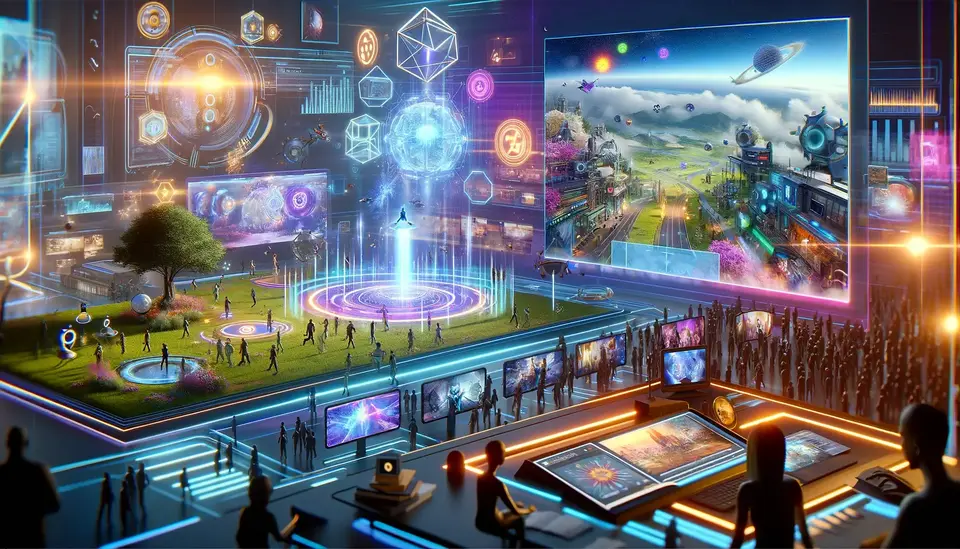Benefits of Metaverse for Education
Posted on May 19, 2023 4 minutes 820 words
Table of contents
As technology advances, so do the ways we interact with the world around us. The metaverse, a collective virtual shared space created by the convergence of virtually enhanced physical reality and physically persistent virtual reality, is poised to revolutionize various aspects of our lives, including education. By harnessing the potential of the metaverse, we can create immersive, engaging, and personalized learning experiences that can transform education as we know it. In this blog post, we will explore the benefits of integrating the metaverse into education and its potential to shape the future of learning.
Immersive and Engaging Learning Environments
Traditional classroom learning can be limited by physical space and resources. The metaverse, on the other hand, offers boundless possibilities for creating immersive 3D environments that can captivate students’ attention and make learning more engaging and interactive. These virtual worlds can be tailored to various subjects, allowing students to explore historical sites, conduct scientific experiments, or navigate fictional worlds that bring literature to life. By immersing students in these environments, the metaverse fosters a deeper connection to the material and enhances learning outcomes.
Personalized Learning Experiences
In traditional classrooms, it can be challenging to cater to the individual needs, strengths, and interests of each student. The metaverse, combined with artificial intelligence and data analytics, offers a solution to this problem by enabling personalized learning experiences. Adaptive learning tools can analyze students’ performance and learning preferences, providing customized content and support that address their unique needs. This targeted approach helps learners progress at their own pace and empowers them to take control of their educational journey.
Collaboration and Social Learning
One of the most significant benefits of the metaverse is its ability to connect students, teachers, and experts from around the world. In virtual classrooms, learners can interact with their peers and educators in real-time, collaborating on group projects, participating in discussions, and providing instant feedback. The metaverse also enables guest lecturers and experts to contribute their knowledge and experience, regardless of their physical location. This global connectivity fosters a diverse learning community and encourages cross-cultural understanding.
Access to Quality Education for All
The metaverse has the potential to democratize access to quality education by eliminating geographic and economic barriers. Students in remote or underprivileged areas can participate in virtual classrooms, gaining access to resources and opportunities that might have been otherwise unattainable. Initiatives like the Global Education Coalition, which aims to provide affordable and accessible metaverse-based education to marginalized communities, exemplify how this technology can make a positive impact on a global scale.
Lifelong Learning and Skill Development
The rapidly changing job market demands that individuals continuously upgrade their knowledge and skills. The metaverse can support lifelong learning and professional development by offering easily accessible and flexible learning opportunities. Online courses, workshops, and training programs can help individuals upskill or reskill in various industries, ensuring they remain relevant and competitive in their careers.
Real-world Applications and Simulations
The metaverse can be used to create realistic simulations of real-world scenarios, providing valuable experiential learning opportunities. Students can participate in virtual scientific experiments, historical recreations, or vocational training simulations that enhance their understanding and retention of information. These hands-on experiences can also help learners develop critical thinking, problem-solving, and decision-making skills that can be applied in real-life situations.
Potential Challenges and Ethical Considerations
While the benefits of using the metaverse in education are significant, it’s essential to consider potential challenges and ethical concerns, such as privacy, data security, and the digital divide. As more personal information is stored and shared in virtual environments, maintaining privacy and data security becomes crucial. Educators and technology providers must work together to establish robust security protocols and ensure that sensitive data is protected. Additionally, clear guidelines and policies should be in place to prevent misuse of personal information and protect users’ privacy.
Another challenge is the digital divide, which refers to the gap between those who have access to technology and those who do not. As the metaverse becomes more integrated into education, it is essential to address this issue to ensure that all students have equal access to the benefits of virtual learning. Initiatives such as providing affordable internet access, distributing devices to underprivileged communities, and promoting digital literacy can help bridge the gap and create a more inclusive educational environment.
Conclusion
The metaverse has the potential to transform education by creating immersive, engaging, and personalized learning experiences. By connecting learners from around the world, fostering collaboration, and providing access to quality education for all, the metaverse is redefining the way we learn and interact. While challenges and ethical concerns must be addressed, the benefits of integrating the metaverse into education are undeniable. As we continue to explore and embrace the possibilities offered by this emerging technology, we can shape a future of learning that is more inclusive, engaging, and effective than ever before.








